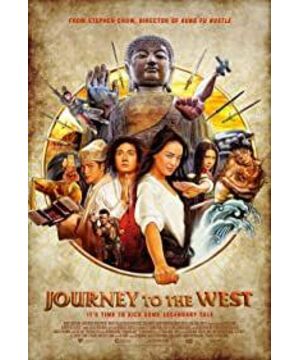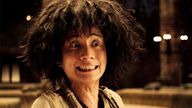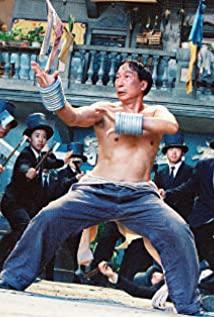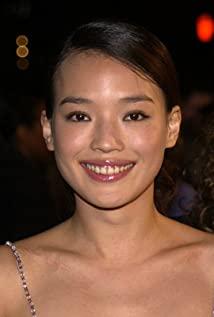In the episode "The Love of a Lifetime", which is crucial in both works (which also proves the similarity of the story), Lu Guanting sang like this: "Love and hatred are turned over by the sea of bitterness, and it is hard to escape destiny in the world, or I It should be believed that it is fate." Love is unavailable, and fate cannot be escaped. While the protagonist recognizes the necessity of fulfilling his mission, there are still doubts and sorrows in his heart.
In fact, these two (or one) stories are essentially the process in which the protagonist is called, and they are ultimately captured by a huge ideology. But the timelessness or specialness of the story lies in the fact that the process of inquiry is highly related to the protagonist’s encounter with love. Xuanzang in the "Coming of Demons" was considered by his master to be a little too close to enlightenment, so he could not complete the construction of his subject. It was not until he witnessed the death of his lover that the so-called "pain, and then all living beings are suffering", did he find his social position of "passing through all living beings". In contrast, the way the big talk is handled is more layered and meaningful. First of all, the narrative dimension was switched five hundred years ago and five hundred years later, with a certain sense of recurring fate. Secondly, the three moles, the symbol of Zhi Zun Bao's identity, were given to him by Fairy Zixia when they first met. An encounter simultaneously triggers the identification of love and destruction of love. The mark used by Fairy Zixia to prove that she absolutely possesses the supreme treasure, ironically becomes a reason for being engulfed by a more grandiose construction. This kind of treatment that allows love and destiny decisions to accompany, but also contradicts each other, makes the passing of love and the destiny finally accepted more helpless and sad.
It is worth noting that in most of Stephen Chow's movies, the love plot is often in this paradigm: the diaosi male protagonist has always been bitterly in love with the true color of the heroine, and finally succeeded because of the integrity and kindness of the little character. In the Journey to the West series, however, there is a reversal of women chasing men while men dismissive of them. The reason for this situation is that Zhou Xingchi, as a creator, must first be considered. He will definitely bring himself in when creating. Reminiscent of the famous photo of Zhou riding a bicycle in Yinchuan and the various ties with Karen Mok and Zhu Yin, it is hard not to think that there is Zhou's self-projection in the female chasing male model. At the same time, the position of the whole movie is entirely male, which can be clearly seen from the gender distribution of the big talkers. From the protagonist's point of view, as mentioned above, until the death of the heroine, we and the hero can be sure of our love for the heroine. Just like Lacan’s point of view, the value of the object of desire lies precisely in its unreachability. The source of pleasure is not the achievement of the goal, but the constant (doomed to fail) attempts at the goal. Therefore, only after confirming the death of the heroine and the inaccessibility of their love, the male protagonist will miss such love. The beauty of love does not lie in being loved, but in constant hopeless giving and pursuit. So for the heroine, she enjoys the process of trying again after being rejected, while the hero enjoys the recollection of the dead, and the dead will not be resurrected, so he can safely and boldly love the dead person. For him, death is not the end of love but the beginning.
If we follow this analysis, we will come to a rather pessimistic conclusion about love: like two children playing on the phone, he will call them only when they confirm that the other party will not answer, so they will never be able to talk. Love is nothing more than two people committing their own misfortunes. Of course, this is not necessarily Zhou Xingchi’s subjective creative intentions. What he wants to express may be more regret for missing love, just like the famous line "If God gives me another chance, I will say three words to that girl. "But in the real world without myths and fairy tales, it is more likely that Yang Dechang's cold answer in "Yi Yi": If you live again, the result may still be the same.
Of course, although the essence of the story is the same for the two works that have been in the past two decades, they can easily be distinguished from each other: Whether it is the fullness of the story and the characters, the Journey to the West is much stronger than "Journey to the West". ". Supporting roles in "Big Talk" such as Spring Thirty Mother, Second Master, Dear Grape, etc. are all playable. With the main line of Zhi Zun Bao becoming the Monkey King as the core, the two films have full and precise supporting roles and auxiliary lines. To the unfolding. Not to mention the wonderful setting of leaving a tear in my heart. In contrast, the real characters in "Coming Down the Demons" are only the male and female protagonists, and the three apprentices basically have only functional roles. Including the "Thirteen Taibao Boss" who "cut from Nantianmen to Penglai East Road and didn't blink for three days and three nights" with excellent funny effects, but also monotonous and flat. The more deadly problem lies in the ending, both in the plot and in the psychological changes of the characters, it is too sloppy and careless, which seriously damages the quality of the whole film.
But what is worthy of recognition is the abundance and solidity of the smile. Starting from Shaolin football, I don’t know whether it’s the subject matter or the change of the creative team. Zhou Xingchi’s movie is really not so funny (it seems to coincide with the time of "Northward"). This time, the story is essentially the same as Journey to the West, and the way of making jokes simply returns: fast-talking dialogue (the first scene), the subversion of expectations formed by the ugly girl (carrying a sedan chair), and of course a lot of Sexually suggestive smile (Ms. Duan seduce Xuanzang). This funny model, which has been tested for many years, is still far more funny than the one-stranded model of "Two Forces and Two Reasons, Old Bad Acts" in "People on the Road".
Although it has repeatedly emphasized the continuation or tribute to the loyalty of Journey to the West in the Conquering Demon Chapter, the Conquering Demon Chapter still has its own new attempt. These attempts are mainly on the technical level: the introduction of 3D and special effects, the realistic modeling of monsters and ghosts, and the international character design such as "Exorcist"... Except for some really scary special effects scenes, and too scary The pictures that may make some viewers uncomfortable, in general, are good and bad, and they are not satisfactory.
This is the first Stephen Chow movie in which Stephen Chow is completely hidden behind the scenes. Copying one's own success is the safest way, and the strong Stephen Chow style and Hong Kong film flavor revealed in the movie are all satisfying. But as a fan who grew up watching Stephen Chow's movies, he still hopes that he will continue to appear on the screen as an actor and continue his promising career as an actor. Although this may be like bicycles in Yinchuan, the girls I've loved, and so many things, it's gone forever. God is too stingy and won't give you another chance.
View more about Journey to the West reviews











